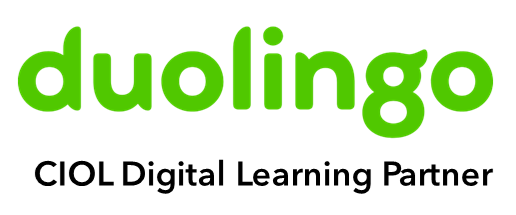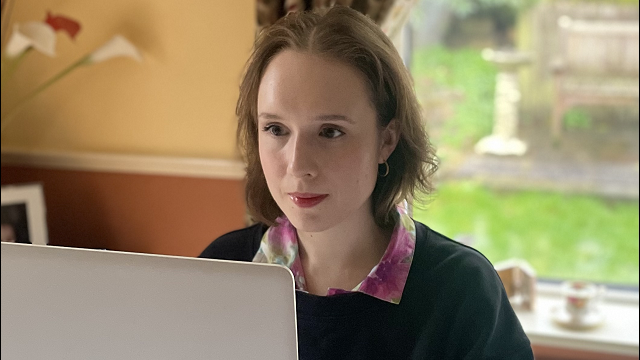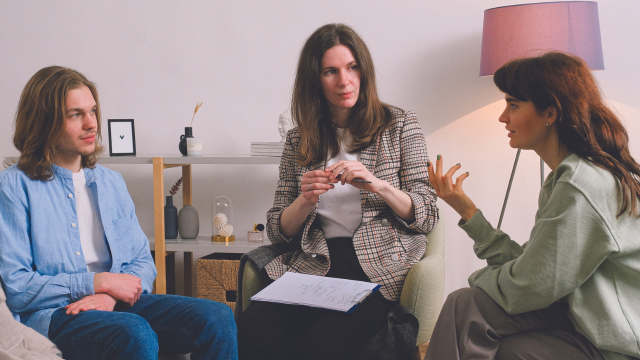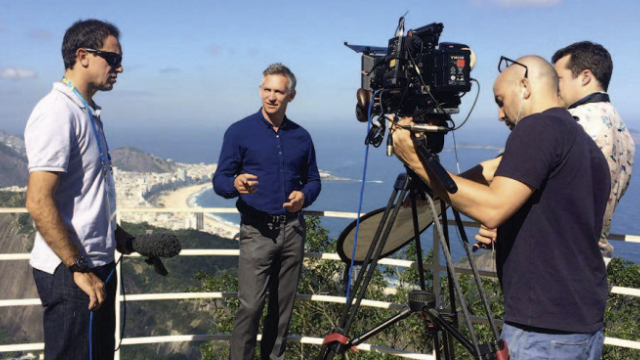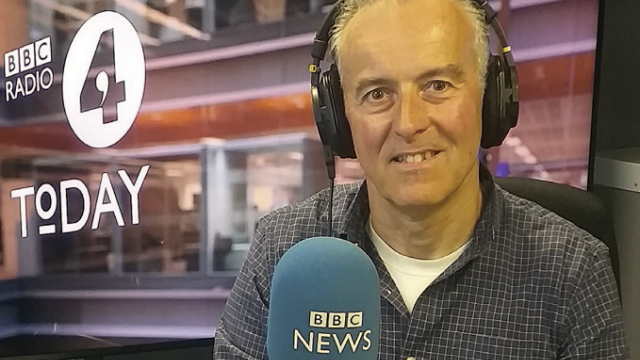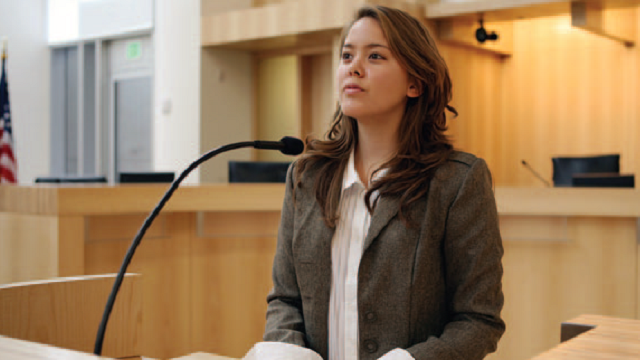-
QUALIFICATIONS
- For Linguists Worldwide
- For UK Public Services
- Preparation
- Policies & Regulation
-
MEMBERSHIP
- Join CIOL
- Professional Membership
- Affiliate Membership
- Chartered Linguist
- Already a member?
- Professional conduct
- Business & Corporate Partners
-
LANGUAGE ASSESSMENTS
- English
- All Other Languages
-
CPD & EVENTS
- Webinars & Events
- CIOL Conferences
- Networks
- CIOL Mentoring
-
NEWS & VOICES
- News & Voices
- CIOL eNews
- CIOL Awards
- The Linguist Magazine
- Jobs & Ads
-
RESOURCES
- For Translators & Interpreters
- For Universities & Students
- Standards & Norms
- CIOL & AI
- All Party Parliamentary Group
- In the UK
- UK Public Services
- Find-a-Linguist
A shared mission with Duolingo
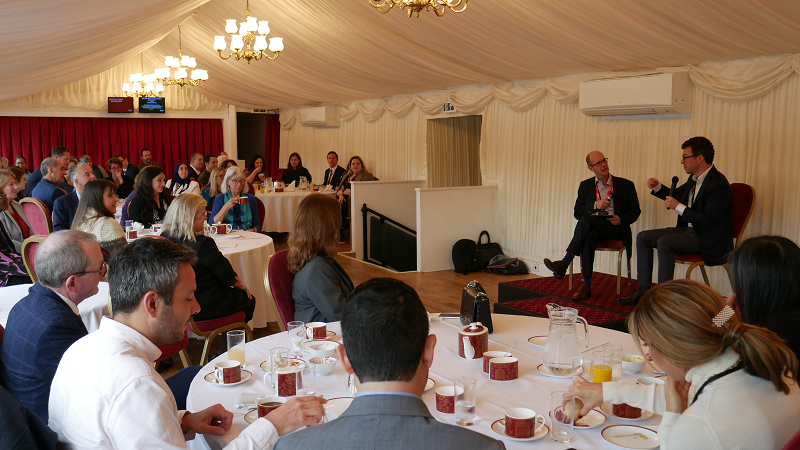
At an event to mark a new collaboration between CIOL and Duolingo, guests sat in on a conversation between the CEOs of the two organisations
CIOL’s motto is ‘universal understanding’ and Duolingo’s mission is to make language learning universally accessible, so working together makes perfect sense. One practical way of doing that is to share what we know about language learning, assessment and the value of languages and culture. So when the chance to talk to Duolingo CEO Luis von Ahn came up, CIOL CEO John Worne reached out to Baroness Coussins to make that a bigger conversation, hosted at the House of Lords.
Once everyone had dodged the showers, cleared security and assembled in one of the Lords’ largest function rooms, we settled down to “listen in” on Luis’s conversation with John, spanning everything from the value of intermediate-level language skills to why Duolingo has an entire lesson on asparagus – part of the cultural essentials for German!
Guests, including representatives from universities, schools, educational initiatives, government and public services, CIOL Council members and senior stakeholders, heard how Duolingo and CIOL have complementary goals. These include a shared love of all things languages, a commitment to multilingualism, and the aim of building appreciation of other countries and cultures through languages.
Duolingo is probably the most popular way to learn a language in the world, offering over 40 languages to 500 million people. When John asked how many people in the room used the app, a sea of hands shot up. Millions are currently on a 365+ day ‘streak’ for uninterrupted days of learning, with John sharing that he was just days away from closing his own 1,000-day streak!
Luis explained what he and his company have learnt from users. The app itself responds to individual learners, giving them content they need to practise while offering just over an 80% chance of success (a ‘sweet spot’ to keep them motivated). Questions from guests were just as informative, with Charlotte Ryland of the Stephen Spender Trust asking how Duolingo engages schools (there is a schools platform to support in-class teaching); and the Goethe Institute’s Katharina von Ruckteschell-Katte asking if Luis would consider more collaborations (yes, as long as learners are the focus and costs to them remain low).
Luis’s commitment to keeping a free version to enable less affluent users to learn came through passionately. “A lot of people say education brings equality but I’ve always seen it as the opposite – something that brings inequality. People that have money can buy the best education and people that don’t, particularly in poorer countries, barely learn to read and write,” he explained.
As part of this mission, the app is far from all that Duolingo is working on. Having recently celebrated its tenth anniversary, it is applying its technology, research and learner-led approach to new areas. With the aim of reducing the high cost for those who need to certify their skills in English, it now offers an increasingly popular English test, accepted by thousands of universities and institutions.
Duolingo also maps its courses to the Common European Framework of Reference (CEFR). Indeed, it was a shared recognition of the value of language frameworks, standards and comparability that first brought CIOL and Duolingo together. Both place a high value on standards and frameworks that help people to know how they are progressing in their language learning journey; and want to build understanding of the value of language skills more widely in business, the professions, government and wider society.
As John explained after the event: “Duolingo bring a unique insight into digital language learning, but crucially they also bring a practical answer to the question of how learners of all ages can learn, maintain and improve their languages. When I did the rounds of TV and radio newsrooms 10 years ago for the British Council to promote language learning for all, that was a killer question – what can we actually do about it? Duolingo provides a very real and tangible answer.” And this is so important. Many people who are not fortunate enough to be able to use their languages in their daily work hugely value the chance to practise, maintain and extend their languages at any time of the day, wherever they are; opening a world of opportunity with a simple tap on a screen.
A purpose-led partnership
Duolingo has an important public service mission over and above its hugely successful and popular learning app. It is committed to advancing pedagogy and testing, mapping to international standards and promoting multilingualism. CIOL’s Royal Charter objects include encouraging the effective study and practice of languages as part of building international understanding and appreciation of other countries and cultures. The organisation also promotes clear standards and frameworks for language learning and use, encouraging testing and qualifications
as part of building the confidence and professional language skills of individual linguists, and the awareness of employers and government of the language skills in their workforces and wider communities.
Both Duolingo and CIOL are committed to encouraging and maintaining the diversity in the languages used and learnt around the world. Duolingo maintains a broad, free language learning offer for beginners and intermediate learners in a very wide range of languages, while CIOL tests in more than 30 languages each year.
Given these complementary goals, the two organisations have agreed to a formal partnership to work together to advance these important themes for languages and linguists. As CIOL’s Dom Hebblethwaite said: “Duolingo’s exceptional breadth of languages, constant innovation and unparalleled reach to both new and established language learners, makes it an exciting and complementary new partner for the Chartered Institute of Linguists and our mission to raise the interest and appreciation of language learning.”
Luis von Ahn
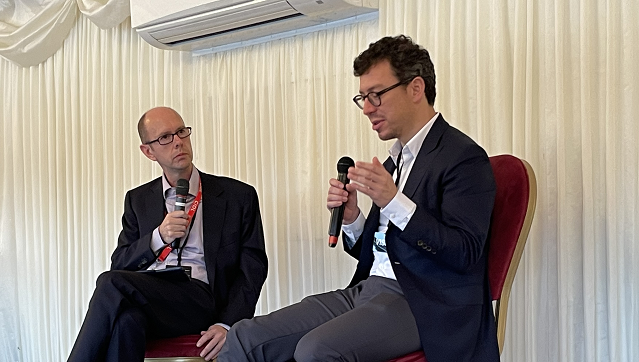
The co-founder and CEO of Duolingo has had a remarkable journey from his childhood in Guatemala City during the civil war to being recognised by Barack Obama for helping to make the world a better place. Growing up in the 1980s, he pirated computer games before developing a keen interest in computer science and maths. Dreaming of becoming a professor, he applied to Duke University, US, but despite his fluency in English, he was required to sit an English proficiency test. With none available in Guatemala, he travelled to a conflict zone in El Salvador at a cost of thousands of dollars to do the exam.
After that, he gained a PhD at Carnegie Mellon University, joined the faculty there and invented Captcha – the system websites use to identify bots – and then Recaptcha, which utilises the function to digitise thousands of books. It was at
CMU that he challenged Severin Hacker (Duolingo co-founder and CTO) to open up the English-dominated internet to people who couldn’t read English. The question was how to get 100 million people to translate the web into every major language for free. From this work Duolingo was born.
The company’s success led to Luis being named among the 100 Most Innovative People in Business by Fast Company. He has also been recognised as one of the 10 Most Brilliant Scientists by Popular Science and 50 Best Brains in Science by Discover.
More
The Chartered Institute of Linguists (CIOL), Incorporated by Royal Charter, Registered in England and Wales Number RC 000808 and the IoL Educational Trust (IoLET), trading as CIOL Qualifications, Company limited by Guarantee, Registered in England and Wales Number 04297497 and Registered Charity Number 1090263. CIOL is a not-for-profit organisation.

